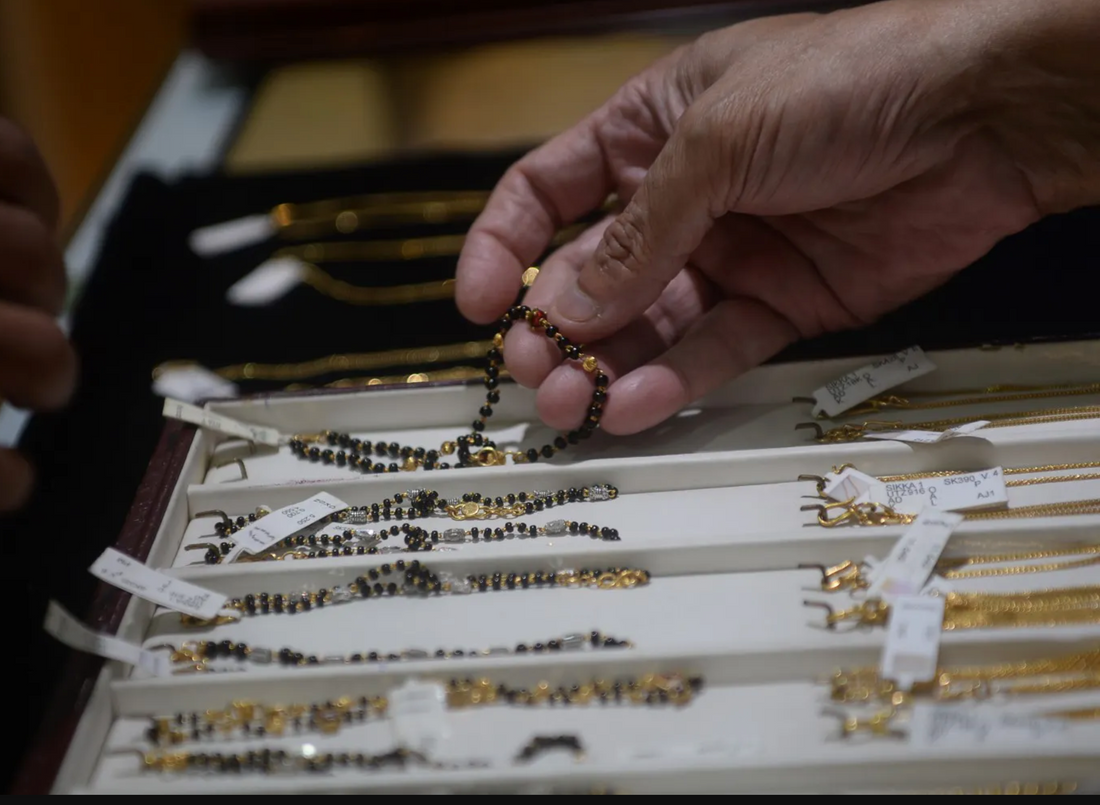As the founder of House of Devi, reading through the thought-provoking article about the evolving significance of the mangalsutra stirred a multitude of emotions within me.
(Here is a link to the article for your reading pleasure. https://www.thejuggernaut.com/mangalsutra-history-hindu-wedding-traditions)
Here is a direct quote from the article:
"Thali around the neck of a woman was a sacred thing which symbolises the continuance of married life and it is removed only after the death of the husband. Therefore, its removal by the petitioner/wife can be said to be an act which reflected mental cruelty of the highest order as it could have caused agony and hurt the sentiments of the respondent," the bench had said.
It not only reaffirmed our mission to redefine the essence of this sacred symbol but also deepened our commitment to preserving its true meaning amidst a changing cultural landscape.
The story of the Chennai couple's courtroom drama highlighted the entrenched beliefs surrounding the mangalsutra and its perceived significance in marital relationships. It's a reminder of the weight placed upon this ancient tradition, a burden that often overshadows its true essence – a symbol of commitment, love, and sacred union.
Delving into the historical origins of the mangalsutra, particularly its evolution from a simple cotton thread dipped in turmeric to the intricately designed necklaces adorned with black onyx and gold beads, provided invaluable insight. It's a testament to the resilience of tradition, adapting to changing times while retaining its inherent symbolism of protection and prosperity.
However, as the article eloquently points out, the mangalsutra is not immune to the winds of change. With the rise of modernity and shifting societal norms, its significance is being reevaluated, with many women opting for more minimalist or symbolic representations of their marital status.
At House of Devi, we embrace this evolution while staying rooted in the essence of tradition. Our vision is to create a mangalsutra that transcends mere ornamentation, infusing it with the healing energies of crystals while honoring its sacred lineage from mothers to daughters.
Drawing inspiration from the healing properties of crystals such as Rose Quartz, Amethyst, Citrine, Green Aventurine, Spinel, and Onyx, our crystal-infused mangalsutra is designed to be more than just a piece of jewelry – it's a talisman of empowerment and spiritual connection.
Rose Quartz, with its gentle energy of love and compassion, fosters self-love and emotional healing, strengthening the bond between partners. Amethyst promotes inner peace and spiritual growth, guiding the wearer towards clarity and harmony in their relationships. Citrine radiates warmth and joy, inviting abundance and prosperity into their lives.
Green Aventurine brings luck and opportunity, instilling confidence and optimism as they navigate life's challenges. Spinel and Onyx, with their grounding and protective properties, offer stability and resilience, empowering women to assert their agency and navigate their paths with grace and determination.
As a woman-founded and woman-led brand, we understand the importance of reclaiming the narrative surrounding the mangalsutra, transforming it into a symbol of empowerment and self-expression. Our crystal-infused mangalsutra is not just a reflection of tradition – it's a celebration of the inherent strength and resilience of women, honoring their journey of self-discovery and love.
In a world where the meaning of marriage and tradition is constantly evolving, House of Devi stands as a beacon of authenticity and empowerment. Our crystal-infused mangalsutra is a testament to the enduring spirit of womanhood, weaving together the threads of tradition and innovation to create a timeless symbol of love, healing, and divine blessings.

